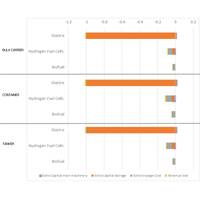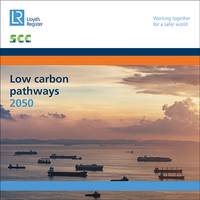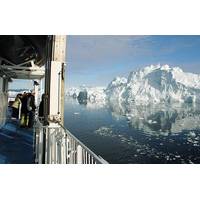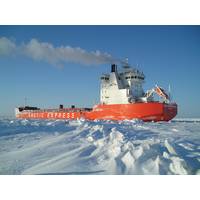Green Group Asks Cosco to Avoid HFO in Arctic
Clean Arctic Alliance has sent its second letter to Cosco, in which the NGOs urge the Chinese liner company to make public what fuel types its vessels use in the…
ICS Hopes for Zero CO2 Fuels
International Chamber of Shipping (ICS) believes that the 2020 global sulphur cap will be the regulatory game changer of the decade with profound implications for the economics of shipping.However…
Bunker Delivery Note Amendments Enter into Force
Amendments to the bunker delivery note relating to the supply of marine fuel oil to ships which have fitted alternative mechanisms to address sulphur emission requirements…
SEA\LNG Voices Support for MEPC 73 Outcomes
SEA\LNG, the multi-sector industry coalition aiming to accelerate the widespread adoption of liquefied natural gas (LNG) as a marine fuel, strongly supports the…
GMN Promotes Technologies to Cut Shipping Emissions
Practical efforts to implement ship energy-efficiency measures and promote technology transfer are an integral part of International Maritime Organization (IMO)'s…
Industry Groups Welcome Arctic Heavy Fuel Oil Ban
The Clean Arctic Alliance and indigenous groups welcomed the support given by member states to commence work on developing a ban on the use and carriage of heavy…
Carriage Ban Adopted to Implement Sulphur 2020 Limit
An amendment to support consistent implementation of the forthcoming 0.50% limit on sulphur in ships fuel oil was adopted by the International Maritime Organization (IMO) on Friday (26 October)…
"What's Your Arctic Fuel Choice?" Clean Arctic Alliance Asks Cosco
The Clean Arctic Alliance called on Cosco to make public the nature of the fuel that the Chinese cargo vessel Tian’en has used and carried through Arctic waters.Clean…
Zero Emission Ships: Comparing Fuel Choices

There's a new report out from the Sustainable Shipping Initiative (SSI) -- authorted by Lloyds Register (LR) and University Maritime Advisory Services (UMAS) --…
UN Body Adopts Climate Change Strategy for Shipping
Nations meeting at the United Nations International Maritime Organization (IMO) in London have adopted an initial strategy on the reduction of greenhouse gas emissions from ships…
Rotterdam Wants an Ambitious CO2 Reduction Plan from IMO
The Port of Rotterdam Authority is calling on the European Parliament to put pressure on the International Maritime Organization (IMO) to produce an ambitious worldwide…
SEA\LNG welcomes Two new Partners
SEA\LNG - which works to accelerate the widespread adoption of liquefied natural gas (LNG) as a marine fuel - has welcomed two new partners, each representing key…
IMO to Press on with Carbon Cutting Effort
IMO says making progress in cutting emissions but environmental campaigners say IMO's efforts too slow. Global efforts to cut greenhouse gas emissions will continue…
Bunker Industry Mulls Implications of IMO’s Global Cap
The International Bunker Industry Association (IBIA) annual convention is taking place this week (7-11 November) in Gibraltar. It brings many of IBIA’s members together…
LR, SCC Release Low Carbon Pathways 2050 Study

Lloyd’s Register (LR) and Shipping in Changing Climates, a $4m multi-university and cross industry research project funded by EPRSC, have today released Low Carbon…
LNG Sector Ready to meet Industry Demand
Ahead of the 70th Session of the IMO’s Marine Environment Protection Committee (MEPC), the cross-industry coalition 'SEA\LNG' has highlighted the ability of the…
The Impact of Hull Form on Efficiency
There is a growing interest in the fuel efficiency of ships because of fuel prices, climate change and energy security issues. This has resulted in, amongst other things…
Milestone for Enhanced Safety in Arctic Regions

United Nations’ International Maritime Organization (IMO) has just approved global binding regulations intending to enhance safety of navigation in polar areas.
Arctic Energy Exploration Efforts Heat Up

Oil and gas—and also mining—are the drivers today propelling Arctic maritime operations and the construction of new vessels able to operate in extreme latitudes.
